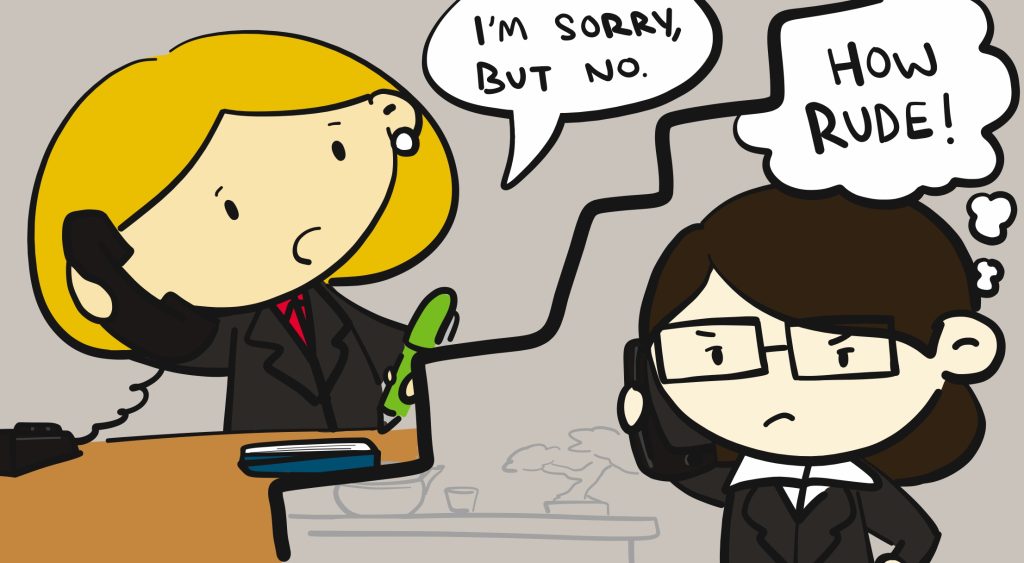As businesses continue to expand globally, many of us are, or will be communicating with people in different parts of the world. Language barriers, customs and even time zones can make effective communication difficult. Keeping the following tips in mind when partaking in cross-cultural communication can help ensure that everything goes as smoothly as possible.
-
Understand that each country has different business customs
In a world as vast as ours, there are bound to be differences. Some of these differences are obvious like language barriers. However, many are much more subtle. In Japan, it is rude to say “No” even in business. So, if you are in communication with a colleague in Japan, don’t be surprised if you feel like the conversation drags on. Also, don’t try to put an abrupt end to a conversation. This will be seen as impolite.
At one of my jobs at a firm that focused on international corporate matters, we had decided that it was in the best interest of the business to terminate an agreement with one of our global partners in Japan. This partner was not happy with this decision and he let us know it, in the most polite way of course. The discussion continued over months until he finally decided to make a trip to the U.S. and meet with us in person. In the end, we were able to get him in touch with one of our global partners in Japan who agreed to oversee the relationship so that we wouldn’t have to. The process was much longer than we would have wanted, but at the end our partner felt respected.
To be successful in a global world it’s critical to be patient and understanding. Especially when it comes to the business etiquette of other countries. If you’re unsure of how to communicate with someone from another country mirror the person you’re communicating with. In some countries communication tends to be more formal. In others it’s more acceptable to discuss personal issues and opinions.
-
Recognize that you are communicating with actual people
At times, communicating by email can sometimes feel like you’re interacting with a computer screen rather than a human being. This can lead to unrealistic expectations. It helps to recognize that you are communicating with actual people just like you. They may need reminders. They also have their own list of personal responsibilities.
There have been times when I was working on a critical project with an overseas colleague and I expected an overnight reply to an email. My frustration would turn to embarrassment, however when I discovered they were dealing with health problems or with issues regarding their children. These were completely understandable reasons why they could not reply to my email. Manage your expectations by realizing that you are communicating globally with genuine people with legitimate lives.
-
Communicate through phone or video conference
Putting a face or even a voice to the names of your global colleagues can do wonders. It builds a stronger work relationship and allows you to get to know them on a more personable level.
Given how much technology has advanced today there is no excuse not to use methods other than email to communicate. Time differences can make things harder. However, I have gotten up at 4 am and have stayed up until 10 pm for conference calls. These aren’t ideal, but they don’t happen often. They do, however, make a world of a difference with regard to your global working relationships.
-
Keep others copied
Many things can get lost in translation, especially if you’re just starting to work with someone globally. Keeping your manager or colleagues in your home country or office copied on correspondence can help, especially when you do not completely understand something. Your manager and colleagues might have more experience with global communication. If you do not understand what is meant in an email, they may be able to explain it to you. Additionally, if everyone in your home office is not understanding what is trying to be communicated, you can collectively decide whether to ask for clarification through email or choose a different method of communication, like the telephone or video conference, to discuss misunderstandings with the global party.
Additionally, keeping others copied on email who work in the same office as the overseas person you are communicating with, such as their manager or colleague, can also help. If your global counterpart can no longer work on your particular project because of a work or personal emergency, the person from their office who has been copied on the correspondence will be able to easily pickup where they left off. This makes things much more efficient than having to explain your entire situation to someone new.
-
Show interest
If you are just starting to work globally you will likely learn a lot more about other countries simply through your work. However, take some time to research countries that you work with regularly. Having a better understanding of even the weather in a country you work with can often give you more insight into the country. Getting to know global regions beyond your work interest can also provide opportunities to get to know your colleagues in a more personal way.
I enjoyed talking about skiing and snowboarding with colleagues in Sweden. I thought traffic and commuting was bad here in the U.S., but my Brazilian colleagues shared that it’s nothing compared to what they experience in São Paulo. Learning from and getting to know others around the world is one of the best parts of working in international businesses.



